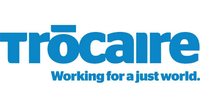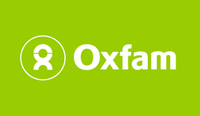Terms Of Reference – November 2025: Baseline Evaluation – Sunflower Project
Consultancy, Research Jobs
Job Description
1. BACKGROUND TO THE EVALUATION
Established in 1973, Trócaire is the official overseas development agency of the Catholic Church in Ireland. We work with local and church organizations in 20 countries across Africa, Asia, Latin America, and the Middle East to support communities and bring about lasting change. Our vision is a just and peaceful world where people's dignity, rights, and basic needs are met, resources are shared equitably, and those in power act for the common good.
Trócaire Zimbabwe is implementing a project titled: “Enhancing food security through sustainable capture, access and utilisation of water, climate resilient farming practices, and natural resource management in Zaka District, Masvingo Province, Zimbabwe”. The project is supported by Sunflower and contributes to Trocaire’s climate change mitigation and adaptation programming in Zimbabwe . The project focuses on the sustainable capture, management, and usage of water for agricultural production and increasing food security for vulnerable, small-scale farmers. Its expanding Trocaire initiatives building on evidence-based, technical approaches and best practices in respect of the sustainable management of water appropriate to the target locations and which are achieving positive results for communities. Through this project, Trócaire and one local implementing partner Caritas Masvingo are using an integrated approach to address food insecurity.
ant d
Duties and Responsibilities
1.1 Expected Project Objectives
1. To enhance water capture and storage systems (e.g., runoff pits, weirs, small dams) to reduce water loss and ensure a reliable water supply for agriculture during the wet and dry or below optimal rainy seasons.
2. To restore and protect wetlands and other natural ecosystems that function as water sponges to improve water retention and regulate water flow throughout the year .
3. To promote sustainable agricultural practices among local farmers, integrating climate-resilient agricultural techniques such as agroecology , and promote the growing of drought tolerant traditional seed varieties, to improve crop yields, reduce water wastage, and build resilience to climate shocks.
4. To increase community awareness and capacity-building through Environmental Management Committees (EMCs) - comprising both females and males - in advocating with government duty bearers for water management and biodiversity conservation to promote long-term sustainability and reduce dependence on rain-fed agriculture.
2. GEOGRAPHIC COVERAGE, TARGET GROUPS AND PROJECT ACTIVITIES
The project is being implemented in Zaka district of Masvingo Province, by Caritas Masvingo. The initiative intends to serve farmers in three target wards, nos. 12, 17, and 24, with a combined population of 15,246 people (8,288 females and 6,958 males) across a total of 3,547 households. Project activities being undertaken include training in agroecological practices, provision of initial seed packs for crop production, construction of weir dams etc. This baseline evaluation should therefore include all target wards and population groups mentioned.
3. PURPOSE OF THE EVALUATION
The overall purpose of the Sunflower baseline process is to establish the pre-grant conditions of project against which future changes can be measured. The baseline will collect information on the established indicators in the Sunflower grant results framework, with target groups and other identified key stakeholders of the programme. The baseline will provide information on the current situation of the project’s target beneficiaries, particularly on current systems, practices, and knowledge. The baseline process will enable Trócaire and Caritas Masvingo to benchmark all the project indicators. Ultimately, the baseline position will enable meaningful evaluation of the programme at the end of the project cycle when the values of all indicators will be compared with the baseline values.
Evaluation objectives:
• To measure the Sunflower grant indicators at the start of the grant and other relevant factors which may impact the project positively or negatively.
• To identify any required changes that need to be made to our indicators and measurement approaches to inform ongoing MEAL on the grant.
4. EVALUATION METHODOLOGY
The baseline will be conducted by Trocaire and Caritas Masvingo. An external consultant will be hired to support the Data collection, Analysis and report writing process. The baseline will use a mixed methods approach in this assignment. The qualitative data will detail the context and will be used to triangulate data from the quantitative surveys and literature/desk review. The full, detailed methodology will be finalized in consultation with Trocaire and Caritas Masvingo.
5. PROPOSED APPROACH AND TIMELINES
The Trócaire team will collaborate with the consultant to determine the best approach and methods for the end of project evaluation. The consultant is expected to develop and submit a structured workplan for the evaluation. All activities should be scheduled between the 1st of December 2025 to the 31st of December 2025 as shown in table below:
Phase Key Dates
Planning & Preparation 1– 5 December 2025
Data Collection 8 -12 December 2025
Analysis & Reporting 13-22 December 2025
Closure & Validation By 31 December 2025
5.1 DOCUMENTS TO BE PROVIDED BY TRÓCAIRE FOR REVIEW
The following documents, containing further information on the project, will be provided to the consultant:
i. Sunflower Proposal
ii. Sunflower Results Framework
iii. Previous Sunflower phase End of Project report.
6. BUDGET DETAILS
Submission of a comprehensive budget is required from the consultant, which should include supporting documentation such as the TIN (Taxpayer Identification Number) certificate and Tax Clearance Certificate.
Compliance with the Zimbabwe Revenue Authority (ZIMRA) regulations and possession of a valid Tax Clearance Certificate is expected from the consultant. If the consultant is unable to provide the required tax clearance documents, Trócaire is mandated to withhold 30% tax. The budget should include expenses for travel, per diems, and other relevant costs, along with the proposed methodology in the technical proposal.
The payment schedule for consultants will be as follows: a 30% down payment of the total consultancy cost upon receipt and acceptance of the Inception report, 30% on completing data collection and presenting preliminary findings and the final 30% to be paid upon submission of the final assignment and all related deliverables, to the satisfaction of Trócaire. All payments will be processed upon receipt of invoices.
The consultant's responsibilities will encompass overseeing the entire evaluation process, including planning, pilot testing of tools, collecting field data, analyzing data and preparing reports. Trócaire implementing partner will also participate by providing support to the consultant and facilitating coordination and arrangement of stakeholder meetings during the data collection phase.
7. ETHICAL CONSIDERATIONS
Participation in the study will be conditional on obtaining informed consent from eligible individuals. The anonymity of participants must be safeguarded, and every effort will be made to maintain the highest level of confidentiality regarding the information gathered. Furthermore, no personally identifiable information will be collected or associated with the results of the Sunflower Baseline project evaluation, to ensure that the privacy of participants is fully protected.
. FORMAT FOR SUBMITTING THE PROPOSAL
Interested qualified consultants should provide a proposal covering the following aspects:
1. Expression of Interest (EOI).
2. Detailed technical proposal clearly demonstrating a thorough understanding of the terms of reference (TORs) and including the following:
A. Proven track record in managing, coordinating, and administering comparable studies, along with two samples of recent work that include references for verification purposes.
B. Demonstrated previous experience in designing, managing, coordinating and administering studies of a similar nature,
C. Proposed detailed methodology for the evaluation.
D. Ethics and safeguarding approach, including any identified risks and associated mitigation strategies.
E. A proposed timeframe detailing activity and a schedule/work plan.
F. Team composition, outline of major activities of each member involved and number of working days allocated to tasks
G. Previous experience similar in nature including type of study, sector, organization.
3. A financial proposal with a detailed breakdown of costs for the evaluation:
A. Itemized consultancy fees/costs.
B. Itemized field data collection expenses (accommodation, meals and incidentals will be covered by the consultant).
C. Itemized administrative expenses (printing costs will be covered by the consultant)
D. Validity period of quotations.
E. Copy of registration certificate and other relevant documents.
4. Curriculum Vitae(s) of key team members, outlining relevant experience.
5. Names and contact information of three references who can be contacted regarding relevant experience and quality of work.
6. A copy of previous reports of similar work undertaken on a) End of project Evaluation; OR b) mid-term evaluation.
7. A profile of the consulting firm (if applicable).
10. KEY DELIVERABLESK.ey deliverables and services include:
i. Inception Report (10 pages max), including:
• An updated timeline for the exercise.
• Detailed methodology to be used in the evaluation, including sampling method, and sample size.
• Ethical considerations.
• Brief justification of the methods and techniques used (including relevant underlying values and assumptions/theories) with a justification of the selections made (e.g., of persons interviewed).
ii. Evaluation data collection tools.
iii. Completed consent forms from participants interviewed or photographed.
iv. Data set for all qualitative and quantitative data collected
v. Final Baseline report should not be more than 30 pages and a summary report of 5 pages).
All deliverables should be submitted to Trócaire Zimbabwe by the 30th of December 2025.
8. SAFEGUARDING
In accordance with Trócaire Safeguarding Policy, Trócaire is committed to actively safeguarding communities from harm. Trócaire takes seriously the commitment to promote safe practices and protect communities from harm, abuse, neglect and any form of exploitation as they meet our supported interventions.
In addition, Trócaire will take positive action to prevent abusers from becoming involved in this assignment and will therefore take stringent measures against any Trócaire Staff and/or Associates who abuse communities. The consultant(s) and all related staff must sign the Safeguarding Policy as part of the contract and commit to adhering to it during the Evaluation process.
Trócaire is a member of the Inter-Agency Misconduct Disclosure Scheme, and all consultants will be subject to the assessment of any previous safeguarding misconducts as part of the contract of engagement.
Qualifications and Experience
QUALIFICATIONS AND EXPERIENCE
The consultant/consulting firm must have a relevant mix of skills, competencies and experience needed for the exercise and must have undertaken similar work in Zimbabwe in the last five years.
Postgraduate degree in social sciences or equivalent.
Proven experience in carrying out development research, including evaluations.
Minimum of five years of experience in designing, managing, coordinating and delivering end-line studies, preferably for international non-governmental organizations
Demonstrated experience in quantitative and qualitative data collection and analysis methods.
Experience on cross-cutting issues such as disability, gender, and inclusion, as well as awareness on child protection and child rights issues.
Demonstrated capacity to produce high-quality written outputs in English within scheduled timeframes.
The following experience and demonstrated capacity are highly desirable:
Knowledge and experience in community resilience building, agro-ecology, SGBV, gender equality and social inclusion and advocacy are desirable requisites.
Capacity and experience to work with communities in local languages (isiNdebele and chiShona).
Demonstrated capacity to draft and deliver high quality written work (i.e., reports and associated documents) in the English language.
Ability to meet deadlines set for the tasks and deliverables contracted.
How to Apply
12. PRODUCT RIGHTS AND OWNERSHIP
The ownership of the Baseline report and associated products will belong to Trócaire and its partners. Any documents, publications, photographs, audio recording and other media related to this review will only be shared through their permission.
13. Submission and Deadline
Interested organizations are invited to submit to infozimbabwe@trocaire.org by the 19th of November 2025.




